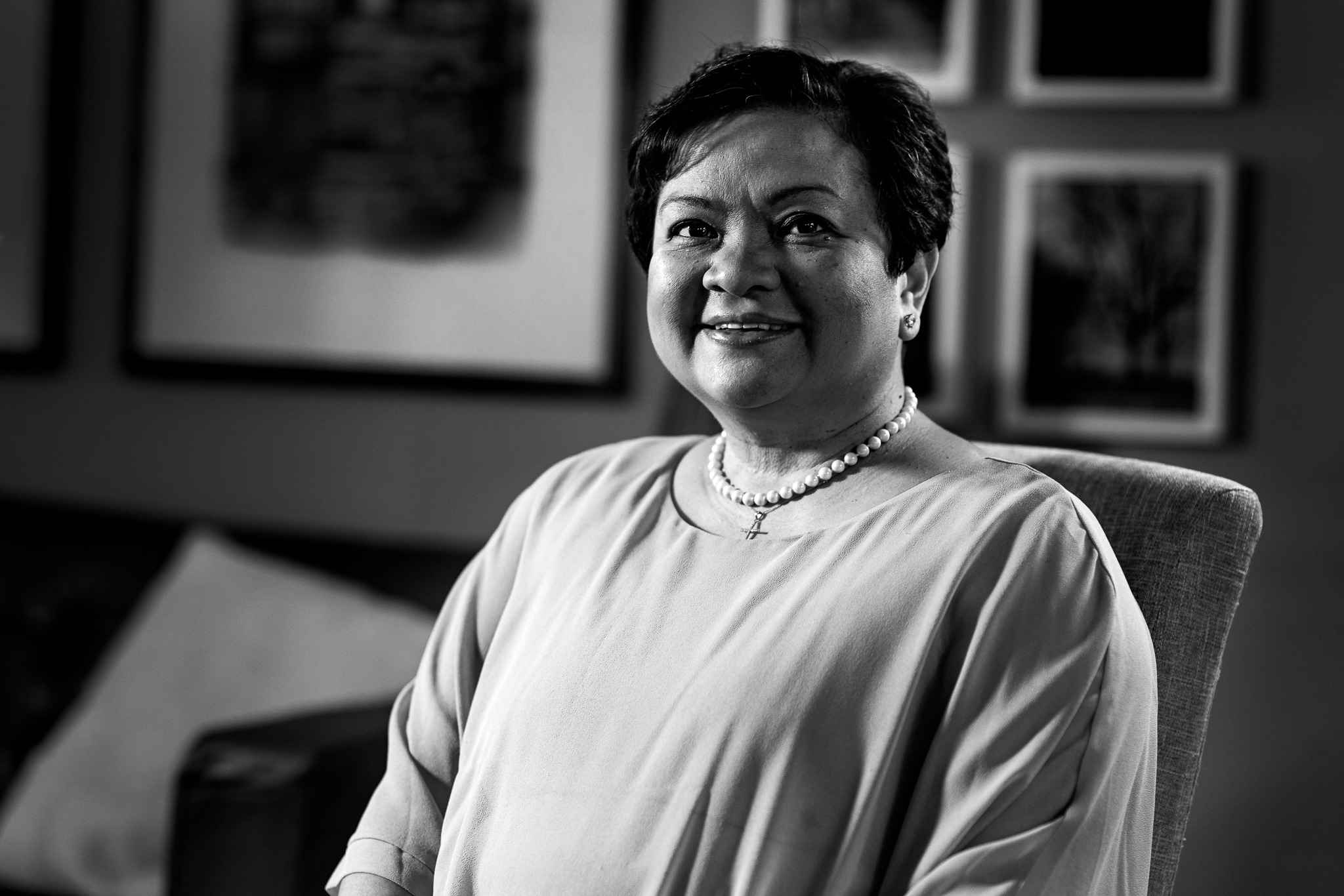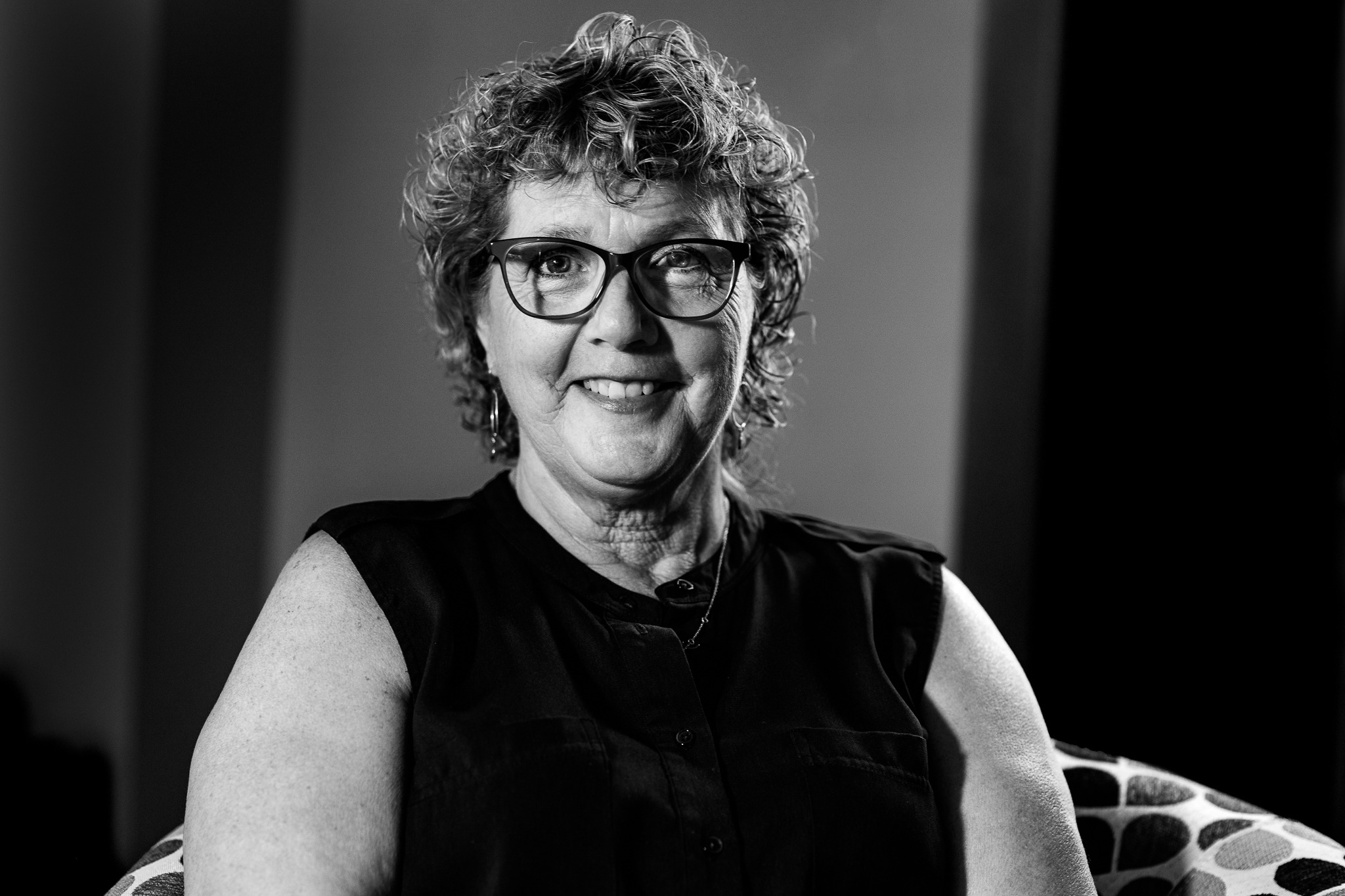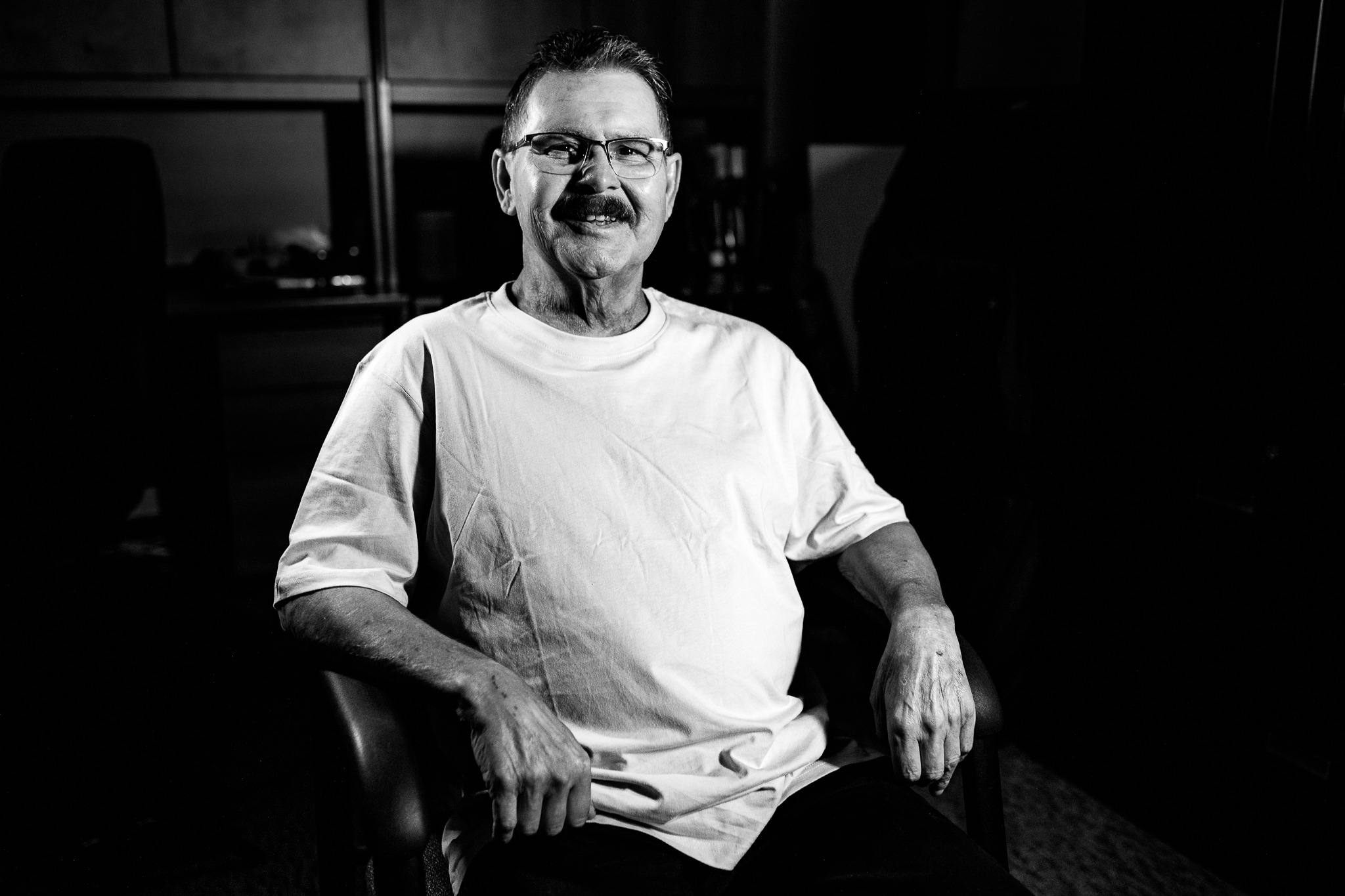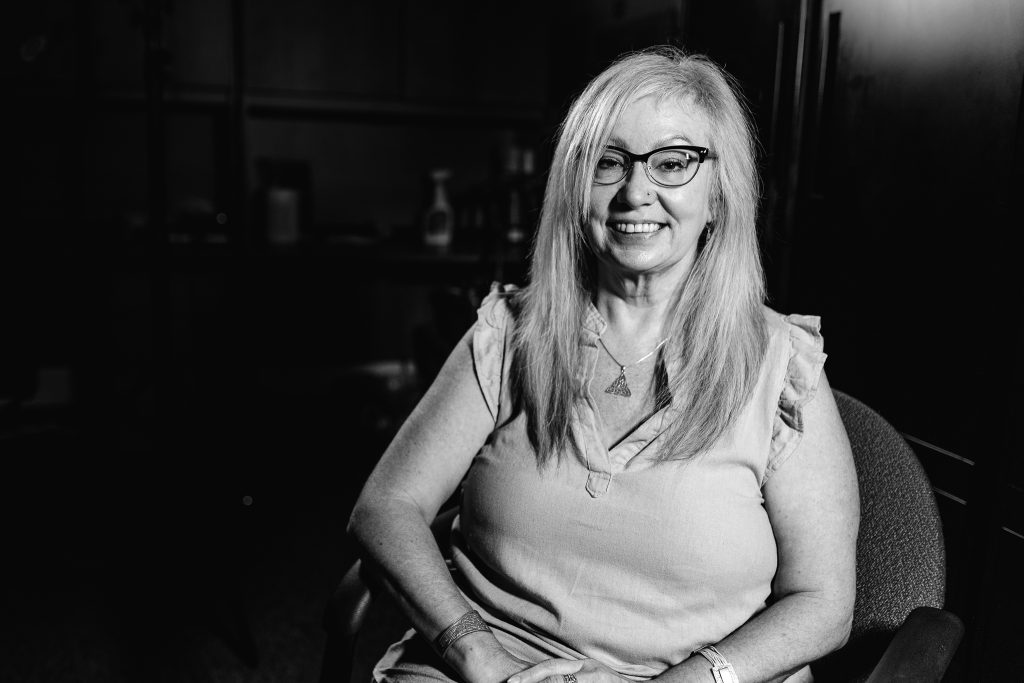
Partnering for equitable, high-quality cancer care
“That shopping trip saved my life.”
Trudie Nicholls loves bargain hunting at local thrift shops. Seven years ago, during a trip to Value Village in Stoney Creek, she noticed a large white bus parked in the lot and wandered over for a closer look.
The Mobile Cancer Screening Coach is a provincially-funded program offering Ontario’s three free cancer screening tests on a specially-equipped coach bus that visits areas of the region with low screening rates. Value Village at Battlefield Plaza is one of its regular stops.
Mammograms are offered to eligible residents through the Ontario Breast Screening Program, pap tests through the Ontario Cervical Screening Program, and a take-home colon cancer test through the ColonCancerCheck program. Screening is important because it can help prevent cancer or catch it early, when it’s easier to treat.
Spotlight on Trudie Nicholls, Mobile Cancer Screening Coach client and breast cancer survivor
The coach is staffed by a Hamilton Health Sciences (HHS) registered nurse, mammography technologist and clerk. It’s equipped with a mammography suite and an exam room for on-site mammograms and pap tests, and there’s a reception and waiting area. Clients can also arrange to have the at-home colon cancer screening test sent to their home, and receive support to quit smoking.
A quick check by the coach’s clerk showed that Nicholls was overdue for her mammogram, so she opted to have it done then and there, on the coach.
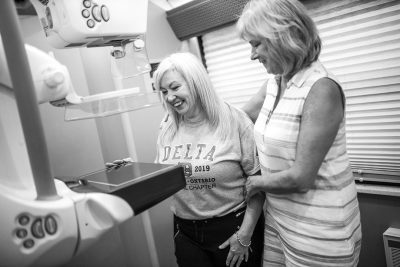
Mammography technologist Carrie Claxton shows Trudie Nicholls the coach’s mammography machine.
“I thought, ‘Why not?’” says Nicholls, who appreciated the team’s warm and welcoming approach. “They took the time to talk to me and made me feel very comfortable.”
A couple of weeks later, Nicholls received a phone call from the coach’s mammography technologist. The radiologist reviewing Nicholls’ breast images noticed an irregularity and wanted more tests done at the Breast Assessment Centre, located at HHS’ Juravinski Hospital and Cancer Centre (JHCC). This, in turn, led to a breast cancer diagnosis and life-saving treatment including a double mastectomy.
“That shopping trip saved my life,” says Nicholls.
Life-changing cancer care
Dr. Meghan Davis is the medical lead for the coach, lead primary care physician for the region and a Hamilton family doctor.
“Follow-up care in Hamilton means JHCC,” says Davis. “Our coach team is completely confident that our clients will receive the very best care there. As a family doctor I have the same trust in JHCC. It’s the pathway for care within my own practice.”
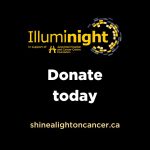 JHCC is the only hospital in the region where patients can be treated for all forms of cancer, and is a designated leader in the provincial cancer system in a number of highly specialized cancers. Staff and doctors at JHCC support more than 26,000 patients with cancer each year.
JHCC is the only hospital in the region where patients can be treated for all forms of cancer, and is a designated leader in the provincial cancer system in a number of highly specialized cancers. Staff and doctors at JHCC support more than 26,000 patients with cancer each year.
“The coach addresses barriers by meeting the people where they are.” — Dr. Meghan Davis
Davis praises the coach team and JHCC for their commitment to health care equity, where everyone has a fair chance to live their healthiest lives. By visiting communities with low screening rates, the coach team helps to break down barriers many people face in getting screened for cancer or finding help to quit smoking.
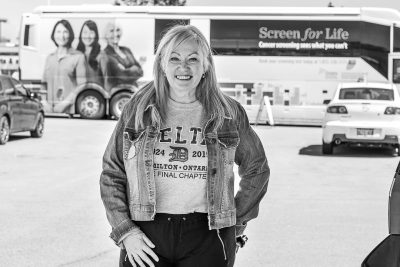
Trudie Nicholls had a life-saving mammogram on the Mobile Cancer Screening Coach
Obstacles can include a lack of transportation to visit a mammography site or their family doctor, or having no family doctor. There could be language or cultural barriers, which the coach helps overcome through its translation service and staff cultural training. Other barriers include a lack of trust in the health care system, isolation, homelessness, mobility challenges or a work schedule that makes it difficult to seek health care during the week.
“Lots of people in our community face more than one barrier,” says Davis. “The coach addresses barriers by meeting the people where they are, whether it’s in their neighbourhood or their workplace through our workplace program. Coach services are community-based, holistic, culturally appropriate and welcoming to clients who might not otherwise access these services in the health care system.”
Nicholls, meanwhile, is fully recovered and back to enjoying life, including shopping at her favourite second-hand stores.
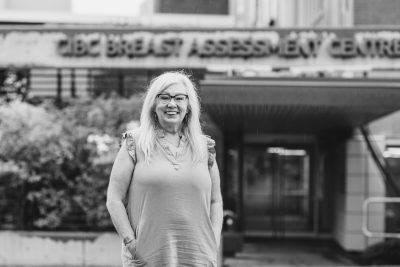
Trudie Nicholls was referred to the Breast Assessment Centre at Juravinski Hospital and Cancer Centre after her mammogram showed an irregularity.
“The care I received at the Breast Assessment Centre was amazing,” says Nicholls. “My tests were done quickly and efficiently and everyone was very friendly and professional.”
Nicholls is also grateful for her life-saving surgery. However, recovering in hospital post-surgery was not a comfortable experience, notes Nicholls, who shared a four-bed ward with three other patients in an old section of JHCC. “There was very little privacy. It was a very uncomfortable and upsetting experience for me.”
Hamilton Health Sciences recognizes that space in the hospital’s old section, comprised of the E, F and M wings, needs to be replaced and modernized. The decades-old areas are not built to today’s standards.
Plans are underway to demolish the old section and replace it with a new tower that will improve accessibility, add more private rooms, upgrade washrooms and add 100 beds. Construction is projected to begin in 2025, and will significantly improve the patient experience.
Spotlight on Dr. Meghan Davis, medical lead for the coach, regional primary care lead, family doctor
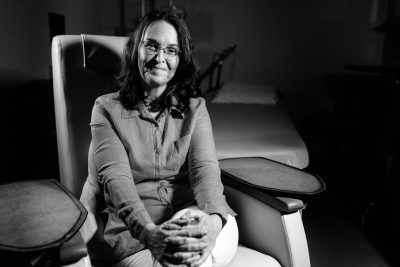
Dr. Meghan Davis is passionate about providing equity in health care and preventative health.
“One of my core values as a primary care physician is to prevent illness or catch it early, which cancer screening and quitting smoking can do,” says Davis, who has been medical lead for the coach program since it launched in 2013.
Some coach clients who need follow-up appointments at JHCC for further testing can be hard to reach, especially if they don’t have phones, stable housing or a family doctor. The coach team is well-known in hospital and community circles for going the extra mile to track down clients in need of follow-up. This includes working with community partners like Good Shepherd and Compass Community Health to locate clients.
The team’s above-and-beyond efforts can be seen in the coach’s follow-up rates for positive screens, which are higher than the regional and provincial averages for the general population. For example, more than 99 per cent of coach clients with an abnormal mammogram completed the recommended follow-up.
These stats are particularly impressive, given that many coach clients face significant barriers to health care, says Davis. “It’s something we’re very proud of. We work hard to earn our clients’ trust, and take this responsibility very seriously. The coach team is a very talented and dedicated group of people that I’m proud to work with.”
Spotlight on Carrie Claxton, mammography technologist
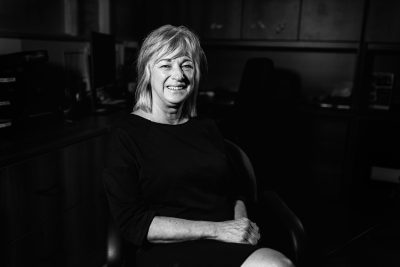
Carrie Claxton is one of HHS’ most experienced mammography technologists, with 40 years of experience in breast imaging. She has been part of the coach team since the program launched and finds the work deeply satisfying.
“I want our coach clients to feel comfortable, welcome and respected, and know they’re valued by our entire team.” — Carrie Claxton, mammography technologist
People often feel nervous about screening tests, because they’re worried that they may have cancer.
“It’s important to remember that most people will have a negative result from their cancer screening tests,” says Claxton. “But if they are diagnosed with cancer, it’s always best to catch it as early as possible through screening.”
As well as having decades of experience, Claxton has taken many courses over the years to hone her skills. Along with clinical skills, one instructor shared some wise words about building an empathetic attitude: “Your patients are somebody’s somebody.” In other words, it’s important to always remember that patients are deeply loved by their own network of family and friends, and want to be there for them.
“That message has stayed with me, and I bring it to work every day,” says Claxton. “I want our coach clients to feel comfortable, welcome and respected, and know they’re valued by our entire team.”
Illuminight: Help shine a light on equitable cancer care
Illuminight is an annual fundraising event that aims to shine a light on the nationally-leading, life-saving cancer care and research at JHCC. This year, we’re celebrating Illuminight with a five-part series of stories and videos from Sept. 22 to Oct. 11 featuring gynecologic, blood and hepato-pancreato-biliary (HPB) cancer care as well as cancer research and health equity.
Look for:
Tuesday, Oct. 11: Lung cancer research and treatment working wonders
Since 2018, Illuminight has raised more than $500,000 to support the highest priority needs of the cancer program at Juravinski Hospital and Cancer Centre. Help us shine a light on cancer and donate today.

